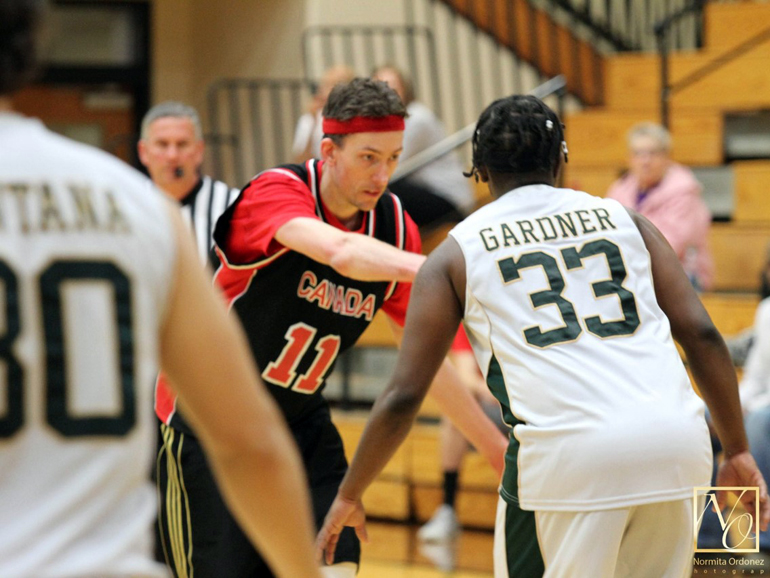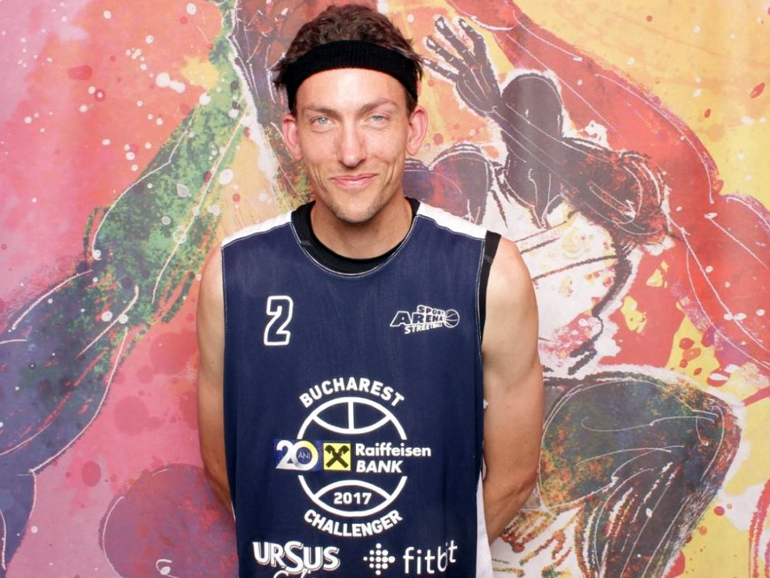A physical education teacher at Richer School is getting ready to represent our country at the Deaf 3x3 Basketball World Cup scheduled for Israel in September 2022.
Graham Bodnar was named to the Deaf 3x3 Canadian National Basketball Team. The next 9 months will be filled with teaching and training hard. His team is training in locations across the country.
It's a good thing Bodnar is very passionate about the sport because it keeps him very busy.
Bodnar's passion extends to helping others succeed in reaching their goals, whatever they may be. This highly skilled athlete is also quite humble.
Rather than talk about his success, he wants to learn about his students' dreams and encourage them.
Are his students aware of his success? Let's find out.
Steinbach Online caught up with Bodnar for a Question-and-Answer segment about his own success and his genuine desire to encourage others to reach for the stars.
STOL: Tell us who you are
Bodnar: I grew up in Winnipeg, Manitoba. I have an older sister and an amazing set of parents and they all definitely played a huge role in helping me develop as a person. More than anything, they provided opportunities and encouragement for me to try different things such as sports. Once I found passion in something, they did just about anything they could to help me continue pursuing that passion.
STOL: When did you develop a passion for sports? Was it always basketball or did you have other interests and then basketball just became your number one passion?
Bodnar: For as long as I can remember, I’ve enjoyed playing just about any sport. My parents gave my sister and I the opportunity to try various organized sports when we were younger and although I enjoyed them all, things changed when I was introduced to skateboarding. All of the sudden, the organized sports didn’t matter anymore and I wanted to spend as much time as I could trying to improve my skateboarding skills. In fact, I didn’t play any organized sports through junior high and high school until all of the sudden, the passion I had for skateboarding shifted one hundred percent to basketball in Grade 10. I still enjoy playing just about any sport, but there is no comparison when it comes to basketball.
STOL: When did you decide to really dedicate so much time and energy to the sport? And who helped you along the way?
Bodnar: Once I decided I wanted to play basketball, there was absolutely no turning back. I was very fortunate to barely make the school team in Grade 10 after never having played organized basketball before. From that moment, all I wanted to do was learn more about the game and improve my skills. Unlike these days where we have resources like trainers and the internet, the only thing I really had was the players around me. The amount I learned from playing with and against my peers was kind of everything at that point. To this day, I’m constantly observing other players and asking them about how they do things on the court in an effort to continue improving.
STOL: What were some of the obstacles you had to overcome along your journey?
Bodnar: The biggest obstacle I had was that I just wasn’t very good at basketball. I was starting so much later than everyone else that I was truly many, many years behind in my development. Not only would I need years and years to actually acquire the skills, but the opportunity to play in organized games was almost nonexistent. It’s tough because you need game experience to get better at learning the actual game, but when you’re not good and your team is trying to be competitive, it is nearly impossible to give players an opportunity to get in the game. When you’re younger, there is more of an everyone gets to play approach, but at the point that I started, if you couldn’t play, you didn’t really get to play. I had a lot of experience playing in what we call pick-up games, but it was very difficult to translate those things to actual games.
STOL: And where are you at right now in your athletic journey?
Bodnar: To be honest, things have not changed that much from all of those years ago. I still approach each day wondering what I can do to continue improving. While I fully realize how fortunate I’ve been to have had the opportunities I’ve had, I still believe that there is more left to do. Right now, I am continually training for the opportunity I have with the 3x3 Deaf National Team to go to the World Cup in Israel next year. This is the first time that the event will be held and I’m really hoping our team can represent Canada well on the world stage. I’ve had a lot of experience with 3x3 basketball including a chance to play on the FIBA 3x3 World Tour and professionally in Japan, so I’m hoping that my experience will be an asset to our young team.
STOL: Let's talk about 3x3 basketball and 5x5 basketball. What's the difference, how big of a difference is one from the other? Do you have a preference?
Bodnar: There are some major differences between 3x3 and 5 on 5 basketball. To most people, 3x3 (not traditional 3 on 3, but rather the new sport of 3x3) is still relatively new, especially as it was played for the first time ever in the Olympics this past summer in Tokyo. I was very fortunate to be a part of a local team that started very early on in the sport and we had numerous opportunities to travel the world playing in what’s known as the FIBA 3x3 World Tour. The 3x3 game itself is a lot faster, a lot more demanding conditioning wise, and really requires that players are versatile on both offense and defense. Each player is required to do just about everything as opposed to 5 on 5 where players are much more specialized in their skills and positions. There is no question that I enjoy the 3x3 game more as each player on the court is that much more involved in every single play of the game.
STOL: You're a school teacher, teaching phys. ed, and I'm very curious to know if your students realize how fortunate they are to have a professional athlete teaching them? Do they know of your accomplishments?
Bodnar: As a teacher, I spend a lot of time encouraging and trying to motivate our students to follow their passions and to believe that they can achieve the dreams that they set for themselves. I’ll be honest that I have not shared a lot of my experiences with them, but I do try to teach them the values and approach that has helped me reach some of these experiences. More than anything, I want them to know that I am here to help them in any way that I can once they’ve discovered their passion and decide what they want to do with it.
STOL: I'm always attracted to stories of inspiration and hope, I love hearing about people overcoming obstacles and reaching success. You are one of these inspiring stories and right now, I'm opening the door for you to share some encouragement and inspiration to whoever is listening/reading and might be hesitant to go after their dreams.
Bodnar: To this day, I truly can’t believe the things I’ve had the chance to do in basketball. The one thing I would tell people that are hesitant to go after their dreams is that you have those dreams for a reason. The passion you have, you also have for a reason. Now you just need to decide what you want to do about it. If you’re willing to put in the work and to do the very best you can each time that you can, you may find yourself getting opportunities that are far beyond what you imagined.


















